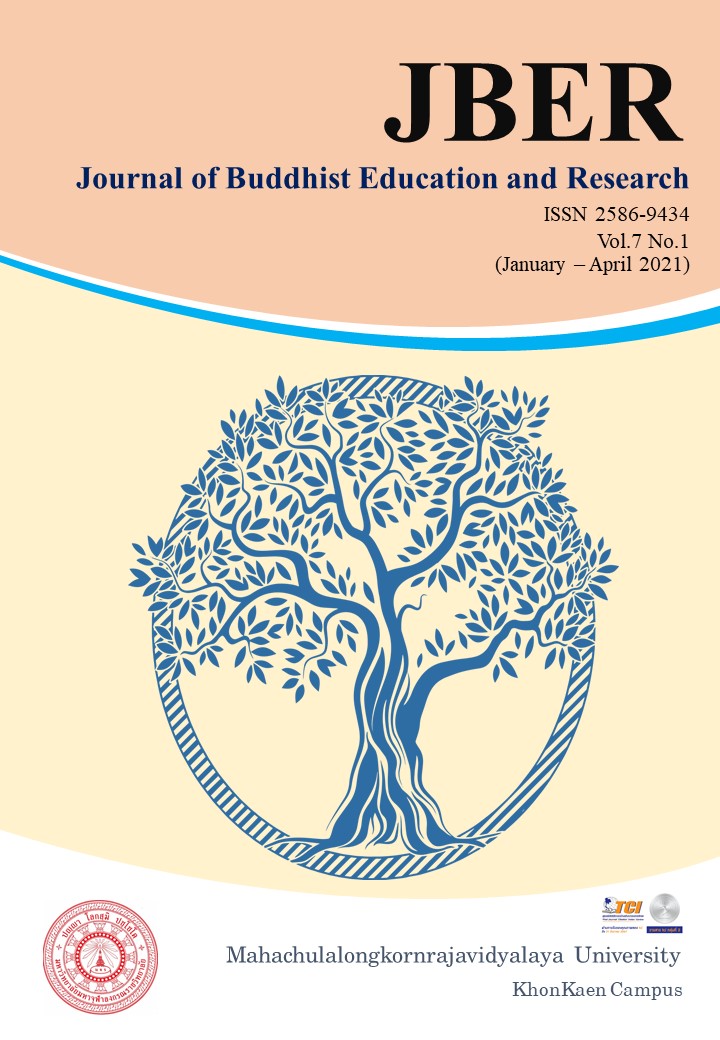THE DEVELOPMENT OF EXECUTIVE INFORMATION SYSTEM FOR MANAGING RESEARCH IN UNIVERSITY BY DATA INTEGRATION TECHNIQUES ON ONTOLOGY ON BUSINESS INTELLIGENCE
Abstract
This research aims to 1) to study and collect the information structures which are necessary to manage the research in universities, 2) to develop the executive information system for managing the research in universities by using data integration on ontology on business Intelligence techniques, and 3) to evaluating the system’ s performances. The data collection used the in-depth interview with 12 people who are vice presidents in research department, personal directors, academic directors, research directors, financial directors, and computer technician officers of Uttaradit Rajabhat University and Phitsanulok University. The system development used Protégé, Google Data Studio and classification algorithm K-NN by Python and PHP and evaluating the system’s performance by using confusion matrix technique and evaluating the user’ s satisfaction to the system’s performance.
The research results were found that:
- The necessary information structure for research management are to integrate the ontology with the relational database which consist of 3 levels and 18 nodes.
- Designing the system’s functions was based on ETL principle. The prediction’s performance by K-NN algorithm at K=3 was at highest accuracy (F-score = 80%).
- The user’ s satisfaction to the system’s performance was at high level ( =4.06, S.D.=0.68).
References
ญาณภา สมนึก. (2558). การบริหารงานวิจัยในสถาบันอุดมศึกษา. สืบค้นเมื่อ 21 สิงหาคม 2563. จาก http://203.131.219.167/km2559/2015/12/11/การบริหารงานวิจัยในสภา/
สถาบันวิจัยและพัฒนา มหาวิทยาลัยราชภัฏอุตรดิตถ์. (2563). คู่มือการจัดการวิจัย. อุตรดิตถ์: มหาวิทยาลัย
ราชภัฏอุตรดิตถ์.
สายชล สินสมบูรณ์ทอง. (2558). การทำเหมืองข้อมูล. กรุงเทพฯ: จามจุรีโปรดักส์.
สุรวัชร ศรีเปารยะ และสายชล สินสมบูรณ์ทอง. (2560). การเปรียบเทียบประสิทธิภาพวิธีการจำแนกกลุ่มการเป็นโรคไตเรื้อรัง : กรณีศึกษาโรงพยาบาลแห่งหนึ่งในประเทศอินเดีย. วารสารวิทยาศาสตร์และเทคโนโลยี ววท. 25(5), 839-853.
Broughton, V. (2006). The need for a faceted classification as the basis of all methods of information retrieval. Aslib Proceedings. 58(1): 49-72.
Chalortham, N., Leesawat, P., Buranarach, M. and Supnithi, T. (2008). Ontology Development for Pharmaceutical Tablet Production Expert System. IEICE Transactions on information and Systems. 94(3), 448-455.
Cronin, B. and Sugimoto, C.R. (2014). Beyond bibliometrics: Harnessing multidimensional indicators of scholarly impact. Cambridge, MA: MIT Press.
Deza, E., Deza, M. M. (2009). Encyclopedia of Distances. Springer. Berlin.
Lai, P., Phan, N., Hu, H., Badeti, A., Newman, D. and Dou, D. (2020). Ontology-based Interpretable Machine Learning for Textual Data, pp. 1-10. In Proceedings of International Joint Conference on Neural Networks (IJCNN). Glasgow, UK.
Oliveira, B. and Belo, O. (2016). An Ontology for Describing ETL Patterns Behavior, pp.102-109. In Proceedings of the 5th International Conference on Data Management Technologies and Applications (DATA 2016). Lisbon, Portugal.
Sun, B., Du, J. and Gao, T. (2009). Study on the Improvement of K-Nearest-Neighbor Algorithm, pp. 390-393. In Proceedings of International Conference on Artificial Intelligence and Computational Intelligence. Shanghai, China.
Tresp, V., Bundschus, M. and Rettinger, A. (2008). Towards Machine Learning on the Semantic Web, pp. 282-314. In Proceedings of International Workshop on Uncertainty Reasoning for the Semantic Web. Karlsruhe, Germany.





